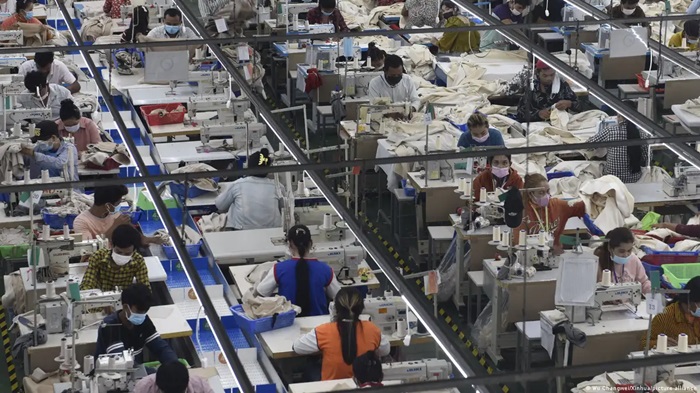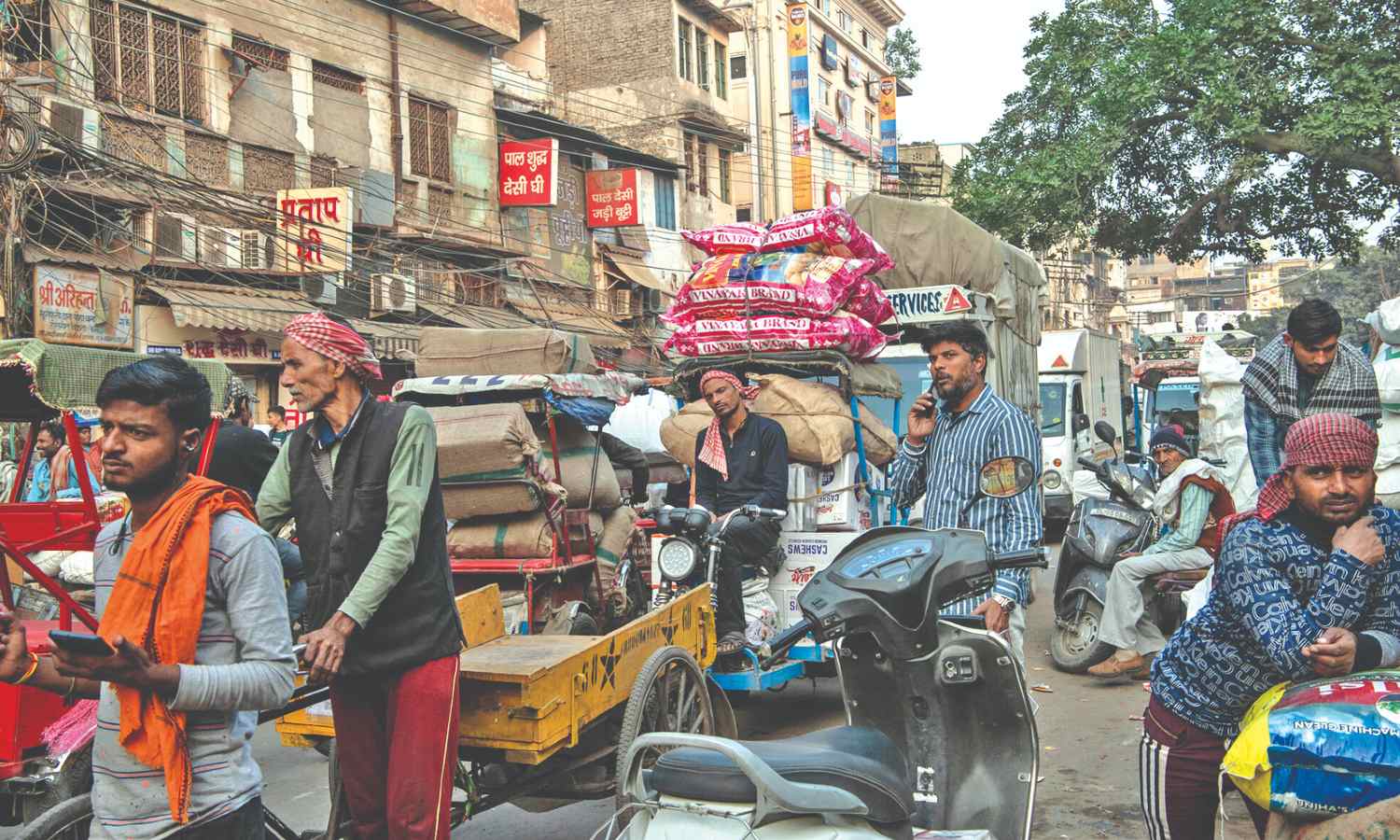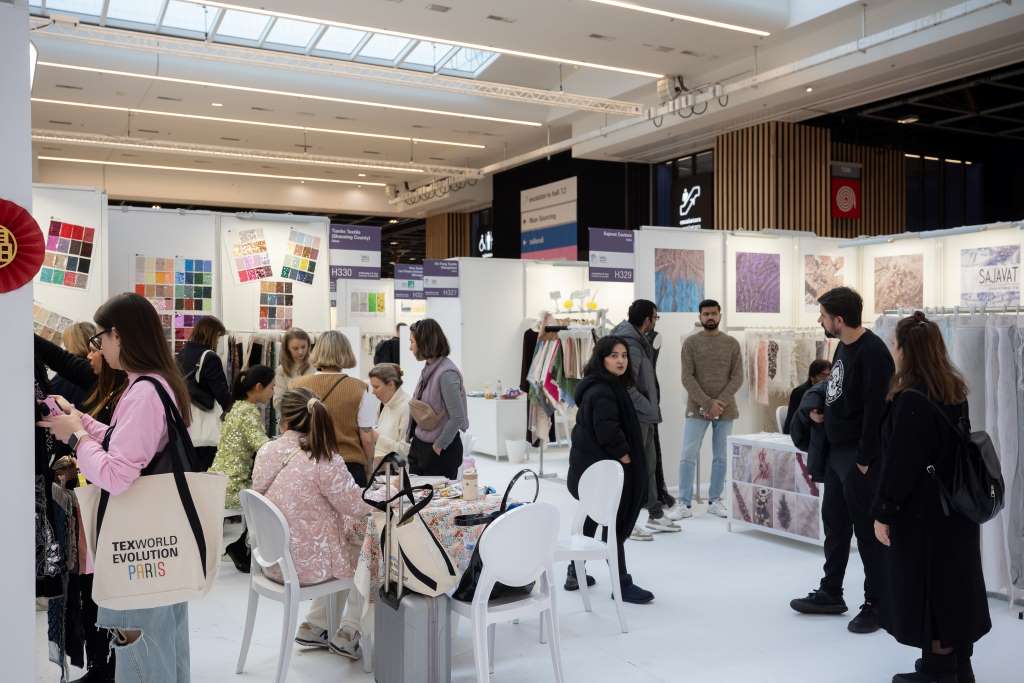FW
The Department of Commerce’s Office of Textiles and Apparel of the US has reported that monthly imports of cotton, wool, man-made fiber, silk blend, and non-cotton vegetable fiber textile and apparel products totaled 5.49 billion square meter equivalents in September, down 9.6 per cent from August and 5.9 per cent from September 2015. Textile imports totaled 2.96 billion SME, down 12.8 per cent from August and 6.0 per cent from the previous year, while apparel imports of 2.53 billion SME were down 7.3 per cent from August and 5.8 per cent from a year earlier.
Total year-to-date imports were 47.3 billion SME, down 2.4 per cent from the previous year, as textile imports fell 3.0 per cent to 26.9 billion SME and apparel imports lost 1.6 per cent to 20.4 billion SME. For the year ending in September last, imports of textiles and apparel totaled 62.4 billion SME, down 1.5 per cent from the same period a year earlier, as textile imports dropped 2.5 per cent to 35.5 billion SME and apparel imports fell 0.3 per cent to 26.9 billion SME.
RadiciGroup has released a series of video clips communicating some of the key themes of its ‘Sustainability Report 2015’. The group is a leading producer of a wide range of chemical intermediates, polyamide polymers, engineering plastics, synthetic fibres and nonwovens. In addition to a video message from President Angelo Radici, shown at the official presentation of Sustainability Report 2015, three video clips called ‘Glimpses’ deal with three themes viz sustainable supply chain, use of water resources and parent company ISO 9001:2015 certification are aimed at illustrating the Group’s strategies for sustainability: concrete action and measurable results.
In a briefing Radici said in 2015, RadiciGroup’s business development was accompanied by positive financial results due to continued focus on operational and financial efficiency and its watchful management policy. The performance of our Business Areas was good overall, although there were some challenges in some markets in difficulty that tested our ability to react and adapt.
For 12 years, the RadiciGroup has reported on its industrial businesses with data and results on its economic, social and environmental sustainability. The concept and realisation of the Glimpses clips were the work of Exposure Architects based on an idea of architect Oliviero Godi who chose to make the videos in black and white.
The black-and-white format helps viewers concentrate on the contents, the people and natural resources making up the surroundings in which RadiciGroup works. And this environment is what the Group is determined to preserve so that it can continue to operate sustainably in harmony with the local communities, Godi commented.
Some 2000 power looms in Erode, Tamil Nadu, have shut down because of the decline in yarn prices. Most power loom owners had got a good number of orders from textile merchants when yarn price was Rs 215 a kg. But for the past week the price has decreased and is selling at Rs180 a kg.
Many power loom owners had procured a huge quantity of cloth, but those who gave orders are now demanding that the price be reduced by Rs 3 a meter, which is impossible as production costs are high.
The new cotton crop is expected to arrive for sale in December at Rs 40,000 a bale. Today it is available at Rs 46,000 to Rs 48,000 a bale. Yarn and cloth producers want steps to be taken to maintain stability of cotton and yarn prices. They want the price to be fixed for a month. If there was poor or high demand the price could be changed after 30 days.
A a group of four related trade fairs: Avanprint, Avantex, Texworld and Apparel Sourcing will be held simultaneously at Le Bourget in Paris in early next February. These fairs will showcase the merits of the textile world to professionals from across the whole industry. The four textile trade fairs have attracted a seen a good increase in registrations, say Messe Frankfurt, the event organisers.
Avanprint, the trade show dedicated to digital printing offers solutions for textile procurement and clothing industry research. The digital textile printing is fundamental to the future of the industry. The performance of the cutting-edge solutions presented at Avanprint constitutes an essential element in cutting consumption of water and energy, in optimising required workspace and in reducing the amount of waste that conventional printing methods entail.
Apparel Sourcing is where the latest innovations for clothing production and accessories will be demonstrated. In view of the current economic situation, Apparel Sourcing Paris has made it a point to take a rigorous approach in selecting the expertise presented here, aware of the promotional value and the need to secure growth markets. Its goal is to provide buyers a platform that presents a wealth of expert techniques and specialised and rare skills, offering high quality and flexibility.
Avantex, is known for sourcing innovative products to help create and design collections that blend fashion with the latest technological developments. Since Avantex Paris was launched in September 2015, they have taken steps so that heads of collections and designers are offered solutions that are at the forefront of innovation for clothing and fashion accessories. The February 2017 show will give rise to a series of new features to enhance sourcing for innovative fashion products and services and to intensify the interaction that is a vital factor in developing new products.
Texworld aims to introduce latest trends from across the industry. Messe Frankfurt France reports an 80 per cent increase in registrations for the next edition of these four shows. The four textile trade shows will take place from February 6 to 9 at Le Bourget, Paris.
South Koreans outdoor apparel and gear maker Black Yak Corp has teamed up with textile manufacturing giant Hyosung to develop functional outdoor clothing. The two firms have signed a MoU under which the sportswear maker will use Hyosung’s odour-neutralising yarn products for making its t-shirts and underwear from next year.
Hyosung’s functional nylon and polyester (PET) yarn products Freshgear and spandex material Creora Fresh, both of which are known to be effective in eliminating smell of sweat or foot odour in textiles, will be adopted by Black Yak. These are mainly used in making underwear, sportswear and stockings which directly contact human body.
Both entities will be working together to develop the fabrics with these yarns. They expect to make use of each other’s global sales network and competitive edges to help expand their presence in their respective global textile and outdoor fashion markets.
The partnership will also help expand market share at home and abroad by employing a range of the latter’s performance fibres to its garments. Black Yak doesn’t run or owns production facilities, it works with external partners in China, Vietnam and Indonesia to produce its goods.
In a series of measures to boost internet commerce across the European Union, the European Commission has proposed simplifying value-added sales tax (VAT) requirements for online retailers. The Commission has already made its plans public in order to make parcel deliveries more affordable, protect consumers when they buy online and to limit geo-blocking, the practice of barring consumers in one country from buying from a provider in another.
Currently, online traders of goods have to register for VAT in each of the EU countries to which they sell goods, a significant barrier given it can cost about €8,000 euros to comply per country. Under the new rules, European companies selling goods online will be able to cover all their VAT obligations across the bloc via their own national tax authorities. The Commission said simplified rules on VAT would save EU businesses €2.3 billion and would also make it easier for smaller companies to trade across borders.
To support start-ups and small traders, companies would be able to sell goods upto €10,000 to other countries in the EU and treat them as domestic sales subject to local VAT rules. For larger businesses, they would no longer be needed to provide two pieces of evidence to identify the location of customers. In future, one piece would suffice. The proposals are part of an EU drive to reduce ‘red tape’ and show it is working for its citizens in the face of a crisis of confidence following Britain's vote to leave the bloc and the rise of populist eurosceptic parties. The new rules will also ensure VAT is paid in the country of the final consumer and help governments recoup some €5 billion of last VAT from online sales per year.
Leading Chinese and global companies say there is huge potential for increase in nylon consumption. Oversupply, demand, capacity, as well as future outlook and strategies were among the other points discussed at the forum.
Huang Wei from Fiber Raw Material Department of Sinopec Chemical Commercial Holding says there is a huge potential for nylon consumption and the markets may begin to shake off the burden of oversupply in 2019. Wei focused on caprolactam fundamental changes and market perspective and discussed carpolactam market outlook. He made these comments at the 14th China International Polyamide & Intermediates Forum. The Forum, supported by Nylon Committee of China Chemical Fiber Association (CCFA) and China National Chemical Fiber Corp., was organised by China Chemical & Fiber Economic Information Network (CCFEI) and Tecnon OrbiChem in Shanghai.
Song Manjun, of Fujian Shenyuan New Materials highlighted China's role in a changing world. He pointed out that China is achieving self-sufficiency in caprolactam with improving quality, and gaining strong influence in Asia and globally on pricing and trade flow. He also mentioned that global PA6 growth is mainly from fibre, while China dominates spin PA6 market, with more export of high quality. Though EP and film applications have quality gap, he said, more Chinese players are stepping in.
As cheap imported textile products continue to flood the market pushing the domestic industry to losses, the Indonesian Textile Association (API) has called on the government to regulate imports. The domestic market was expected to continue to be flooded with imported products in the next two to three years, says API chairman Ade Sudrajat. And to protect the domestic market, imported textile products have to be managed. So would the illegal smuggling of used clothes, he added.
Ade says the government could control the wave of textile imports primarily from China, by setting a reference price. As per Industry Ministry data, the textile industry experienced a loss of Rp 30 trillion ($2.2 billion) per year due to rampant illegal smuggling.
In a rejoinder the ministry's director general for chemicals, textile and miscellaneous industry, Achmad Sigit Dwiwahjono said it would collaborate with the Trade Ministry and the Directorate General of Customs and Excise, Indonesia to curb illegal imports. The utilisation of textile's upstream industry currently stands at 50 to 60 percent. Thus, there should be a new policy to support the industry.
The company will be demonstrating the latest versions of its products – overhead travelling cleaner (OHTC), automatic bobbin transport systems and yarn conditioning plant. Speaking on the product on display, V Balasubramanian and V Benny Jerald, Managing Directors, Mohler Machine Works, said, “Our target customers are from the spinning and weaving sectors. We intend to meet lots of them, both from India and overseas customers, during the event.” Speaking about the key characteristics that give the company the competitive edge, they said, “Our areas of strength are quality, performance and after-sales services which have been already proved their worth in local and export markets. These are the areas where we never compromise.”
Going into details about the company’s plans, they said that they are going in for a completely new production facility in the future. Elaborating on the company focus on exports, they said, “We are the largest exporters of OHTCs in India. Our products are exported to Turkey, Bangladesh, Indonesia, Pakistan, etc. More than 60 per cent of our production is exported. We expect the trend to continue for other products also.”
Textechno's new capacitive evenness tester for filament yarn COVAFIL+ with its new capacitive sensor design and a high-speed yarn twister achieves all requirements on an effective and reliable quality control system. The concept to operate the COVAFIL+ either as a stand-alone unit or in combination with Textechno's well-proved filament yarn testers DYNAFIL ME and COMCOUNT guarantees highest testing efficiency and flexibility, as - apart from tensile strength and elongation - all relevant yarn parameters can be determined with one test system only.
STATIMAT ME+ represents the new generation of the Textechno automatic tensile testers for yarns. Textechno's 'Cotton Control Line' is widened by several new instruments. The focus will be on the enhanced fibre bundle length and strength tester FIBROTEST, the Micronair Station FMT, as well as the automatic fibre-length-, impurity- and spinnability tester MDTA 4, now available from Textechno.
The FAVIMAT+ is the first and only tester to combine six single-fibre test methods in one instrument. The instrument can be used to test a wide variety of fibres, including Aramide, UHMWPE, glass and carbon. The test process can be fully automated by means of the AIROBOT2 system linked to the FAVIMAT+. The AIROBOT2 system features a tensionless storage for up to 500 fibres together with a fully automatic transfer mechanism, which feeds the fibres to the FAVIMAT+ testing instrument without using pretensioning-weights. ECHNO’s solution for those customers, who need a fast tester for single fibre linear density and tensile properties, is the FAVIGRAPH.












